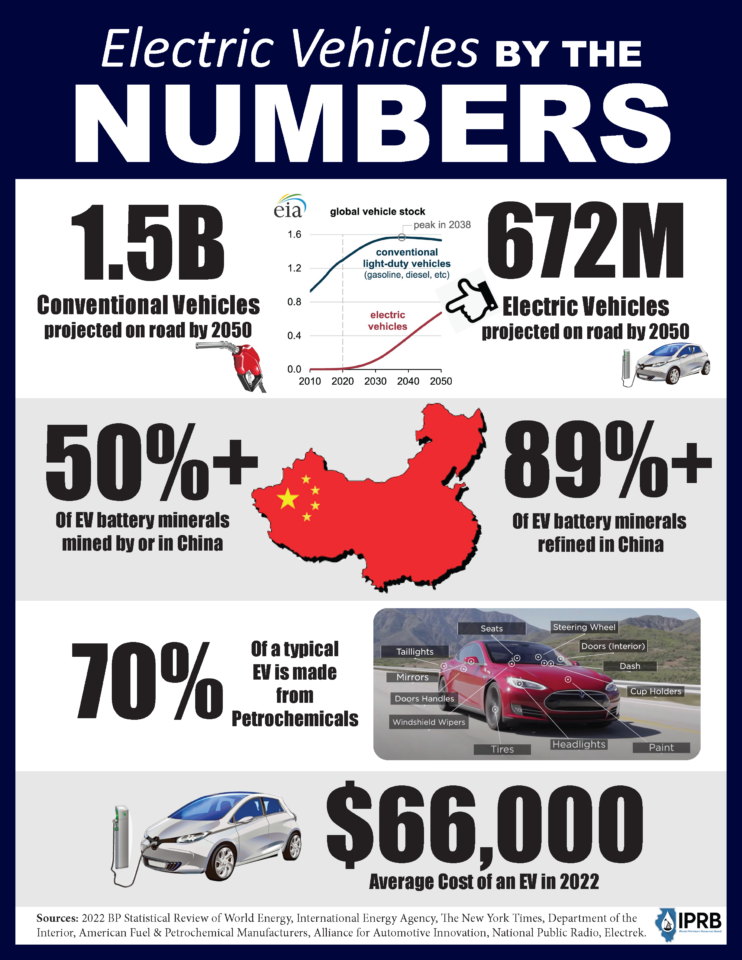Why Americans Aren’t Likely to Embrace Electric Vehicle Mandates
You’d never guess it based on the nonstop barrage of slick TV ads and media hype, but Americans aren’t big fans of electric vehicles. In fact, a new Gallup poll shows that just four percent currently own an EV and four in 10 have no interest in buying one.
There are many legitimate reasons why this is the case. But U.S. consumers may have far less choice in the matter in the not-so-distant future.
Proposed U.S. Environmental Protection Agency rules would effectively mandate by 2032 that two out of every three new passenger vehicles sold in the United States are electric. And a handful of states will ban sales of new conventional vehicles starting in 2035.
The writing is on the wall: Choose to buy an EV now or be forced to do so later. To be clear, EVs have their place and everyone should be free to purchase one if they want. But there are plenty of red flags flapping in the strong winds blowing in an EV-only direction.
First and foremost, most Americans simply can’t afford an EV. The average cost of an all-electric passenger vehicle was $66,000 in 2022. Even Democrats are acknowledging that price tag is too much for most of their constituents. Rep. Debbie Dingell recently said, “Everybody cares about global warming, but I’m hearing from too many people in this country – I mean, strong Democrats – that they can’t afford an electric vehicle.”
And because EVs are dependent on foreign sources for massive quantities of battery minerals, their costs aren’t likely to decrease any time soon – especially if demand suddenly spikes due to mandates. It is because EV components are largely sourced from countries that have poor relationships with the United States and questionable labor practices that many EV models aren’t eligible for the generous $7,500 tax credit included in the Inflation Reduction Act.
Nearly 90 percent of EV battery minerals are refined by China, and half of EV battery minerals are either mined by or in China. More than 70 percent of the world’s cobalt is extracted in The Democratic Republic of the Congo – much of it by Chinese companies that use child labor. EVs require 2 ½ times the copper of conventional vehicles, which is good news for politically volatile Peru and Chile, which mine 40 percent of world’s most prominent “electrification metal.”
In other words, going “green” does not make us energy independent. It instead makes these countries the OPEC of alternative energy. Consumers are also rightly concerned about a lack of charging stations, further burdens on an already overextended electrical grid, poor battery performance in cold weather and limited battery lifespans in general.
But the environmental benefits of EVs far outweigh these issues, right?
Though EVs are responsible for less carbon dioxide emissions over their lifespans than their conventional counterparts, they are by no means “emission free” or a “green” climate change panacea.
It can actually take several years for an electric vehicles’ carbon footprint to drop below that of a conventional vehicle. The Wall Street Journal reported last year that emissions attributable to the Tesla Model 3 are higher than the gasoline-burning Toyota RAV4 for the first 20,000 miles that the vehicles are driven. Assuming both vehicles are driven 200,000 miles, the lifecycle carbon footprint of the RAV4 winds up being 78 tons of CO2 emissions, compared to 36 tons for the Tesla Model 3.
Even the New York Times reports, “Electric cars and renewable energy may not be as green as they appear. Production of raw materials like lithium, cobalt and nickel that are essential to these technologies are often ruinous to land, water, wildlife and people.”
These are just a few of the reasons four out of 10 Americans have no plans to buy an EV now or in the future. The hesitation is simple: affordable, reliable transportation is a necessity for most Americans. Fortunately, conventional cars are becoming increasingly efficient while remaining far more affordable than EVs.
We will need all-of-the-above options for our transportation and energy needs for many years to come. EV mandates are tone-deaf to this reality.

